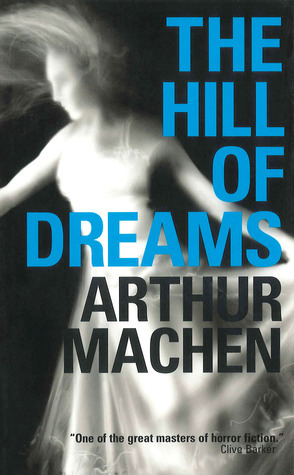What do you think?
Rate this book


241 pages, Paperback
First published January 1, 1907


Perhaps for the first time he realised that he had lost the art of humanity forever. He had thought when he closed his ears to the wood whisper and changed the fauns' singing for the murmur of the streets, the black pools for the shadows and amber light of London, that he had put off the old life, and had turned his soul to healthy activities, but the truth was that he had merely exchanged one drug for another. He could not be human, and he wondered whether there were some drop of the fairy blood in his body that made him foreign and a stranger in the world.

4.5
“Volvió a su antigua conclusión: había perdido el sentido de la humanidad, era desdichado porque era un extraño y un extranjero entre los ciudadanos. Es probable que el entusiasmo por la literatura, según lo entendía él, el deseo ferviente de dominar este bello arte, tuviera algo de inhumano y acaparara el entusiasmo por sus semejantes”
“Los seres humanos andaban siempre perturbándole y cruzándose en su camino; ¿no sería posible aniquilar al género humano, o reducirlo a formas insignificantes?”
“Pero los hombres y las mujeres habían perdido toda su capacidad para incordiarle y molestarle: ya no conseguían turbar sus pensamientos ni por un instante. Lucian podía escuchar a la señora Dixon con aparente atención, y en realidad sentirse transportado por la música implorante de la doble flauta tocada por una joven en el jardín de Avallaunius, pues tal era el nombre que él había adoptado”
“Cuando, de tiempo en tiempo, volvía voluntariamente a la vida ordinaria, lo hacía para poder regresar con mayor placer al jardín de la ciudad de su refugio. En el mundo real, la conversación era sobre los no conformistas, el derecho a voto de los huéspedes y la Bolsa; la gente andaba leyendo constantemente los periódicos, bebiendo borgoña australiano, y haciendo cosas igual de absurdas que esas. Asimismo, parecían escandalizarse cuando se citaba el arte del placer, o confundirlo con ir a comedias musicales, beber whisky barato o permanecer hasta altas horas en compañías vulgares y de mala reputación”
“Annie le había enseñado la extraordinaria magia que había creado el jardín de Avallaunius. Por ella, pues, buscaba extraños secretos y trataba de penetrar los misterios de la sensación, puesto que sólo podía darle pensamientos maravillosos y una vida maravillosa, y un pobre cuerpo marcado por las cicatrices de su adoración”
“Aspiraba a dominar esa magia que hacía que brillase toda la gloria y el encanto del misticismo de la caballería a través de las burlescas y toscas aventuras de don Quijote, la magia con la cual había encendido Hawthorne sus infernales hogueras sabáticas, y que formaba una aureola en torno a la tragedia del pueblo de La letra escarlata”